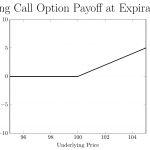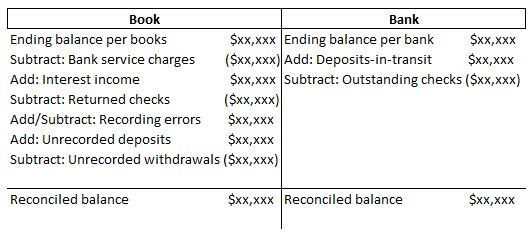It is a means for the government to keep an eye on financial statements while protecting investors’ interests. Companies could hide away billions of dollars of assets and liabilities from being recorded since these assets were not included on the balance sheet. The financial statements of a foreign entity must be recorded as per GAAP requirements. The guidelines must be followed before translation into the reporting currency. Prior period errors are omissions from, and misstatements in, the entity’s financial statements for one or more prior periods arising from a failure to use, or misuse of, available reliable information.
For example, a financial report that looks very impressive may be the result of an aggressive accounting policy. Accounting policies are a company’s guidelines and procedures to record, prepare, and present its financial statements. These financial statements are submitted to the shareholders, investors, financial accounting policies meaning institutions, and other entities outside the company. As per this assumption, the revenues and costs are recognized as they are earned or incurred rather than when money is received or paid. Such accrued revenues or costs recorded in the financial statements concern to the periods to which they relate.
- It can potentially be used to manage earnings or manipulate financial results.
- The policies for expenses normally link to liabilities, both recognition, and measurement.
- Under the LIFO method, when a product is sold, the cost of the inventory produced last is considered to be sold.
- Institute of Chartered Accountants of India (ICAI)) has been issuing notifications over a period of time recommending disclosure of certain accounting policies.
The main goal of the policies as a whole, though, is to track financial transactions and maintain global standards. By implementing sound accounting policies, companies can enhance transparency and disclosure, support effective decision-making, and mitigate financial risks. The amendments introduced the definition of accounting estimates and included other amendments to help entities distinguish changes in accounting estimates from changes in accounting policies.
Businesses must carefully formulate, implement, and document their accounting policies, considering the complexities, subjectivity, and global nature of contemporary financial reporting. Conservative accounting policies exaggerate a company’s current financial performance while overstating future financial performance. Instead, it is a more long-term strategy that allows organizations to show progress over time which is a good indicator for investors.
About the IFRS Foundation
The variation exists especially among those enterprises that include a separate statement of accounting policies in their annual reports presently. Typically, every enterprise follows accounting policies appropriate to its own business as well as industry. Thus, an enterprise mandatorily needs to disclose its significant accounting policies in order to present a true and fair view of its state of affairs. There is a difference between accounting policies and accounting standards. However, about one third of private companies choose to comply with these standards to provide transparency. Due to the thorough standards-setting process of the GAAP policy boards, it can take months or even years to finalize a new standard.
What Is the Difference Between Accounting Policies and Principles?
Without GAAP, accountants could use misleading methods to paint a deceptive picture of a company or organization’s financial standing. If companies were able to pick and choose what information to disclose and how, it would be a nightmare for investors. Although privately held companies are not required to abide by GAAP, publicly traded companies must file GAAP-compliant financial statements to be listed on a stock exchange. Chief officers of publicly traded https://1investing.in/ companies and their independent auditors must certify that the financial statements and related notes were prepared in accordance with GAAP. Generally accepted accounting principles (GAAP) are uniform accounting principles for private companies and nonprofits in the U.S. These principles are largely set by the Financial Accounting Standards Board (FASB), an independent nonprofit organization whose members are chosen by the Financial Accounting Foundation.
Financial Controller: Overview, Qualification, Role, and Responsibilities
In business, clear and comprehensive financial statements can be very beneficial. This kind of a policy will impact your company’s income statement and play an essential part in financial reporting. Businesses that follow accrual accounting implement the matching principle. The matching principle helps give a smooth, normalized income statement where revenues and expenses are tied together. By matching them together, the investors get a better sense of the economics of the business.
Expense recognition policies
Corporate accounting policies can also provide investors with a valuable advantage. Investors can better understand how the company is performing financially. This information can help investors make more informed investment decisions. Investors rely heavily on financial statements to decide whether or not to invest in your company. Transparent and responsible financial reporting will help investors effectively evaluate and decide. Adhering to such policies results in financial statements that precisely showcase your company’s operations and performance.
Accounting policies provide a framework of principles, guidelines, and procedures for preparing financial statements that are consistent, comparable, and reliable. Accounting policies are included in the notes that accompany the financial statements of a business. Small businesses do not necessarily need to adopt aggressive accounting policies. However, it is still a good idea for them to have some basic guidelines in place. This will help ensure that financial information is consistently reported. As mentioned earlier, accounting policies essentially provide companies with a framework to report their financial statements, so they follow a standardized format throughout.
This policy provides clarity on when and how the company recognizes revenue, emphasizing the importance of probability, reliability, and fair value. IFRS and GAAP allow using the first-in, first-out method (FIFO) and the weighted average-cost method. GAAP also does not permit inventory reversals, while IFRS permits it under certain circumstances. Financial statements of subsequent periods need not repeat these disclosures. When tax time comes around, your business will be in a much better position to file its returns. Earnings management is a strategy a management uses to manipulate the company’s earnings deliberately.
It is best to develop a communication and training plan to introduce the accounting manual to the relevant stakeholders, including the accounting staff, managers, and executives. Utilizing real-life scenarios and case studies will give more clarity and demonstrate the practical application of the guidelines. As accounting policies may vary between companies, training sessions will particularly help recruits.
The basic consideration while selecting accounting policies to prepare financial statements is that such policies should represent a true and fair view the company’s affairs. This also includes presenting true and fair view of the profit or loss earned by a business enterprise at the closing date. The company’s accountants can choose between three methods to calculate the inventory value; average cost, first in, first out (FIFO), or last in, first out (LIFO).
Financial reports are also used by external stakeholders including investors, creditors, and tax authorities. ICAI as well as other regulatory bodies have made efforts to reduce the number of alternative accounting policies to be followed in preparing financial statements. These efforts have been made, particularly in the case of corporate enterprises. So, the management of each enterprise has to make considerable amount of judgement at its own level.



